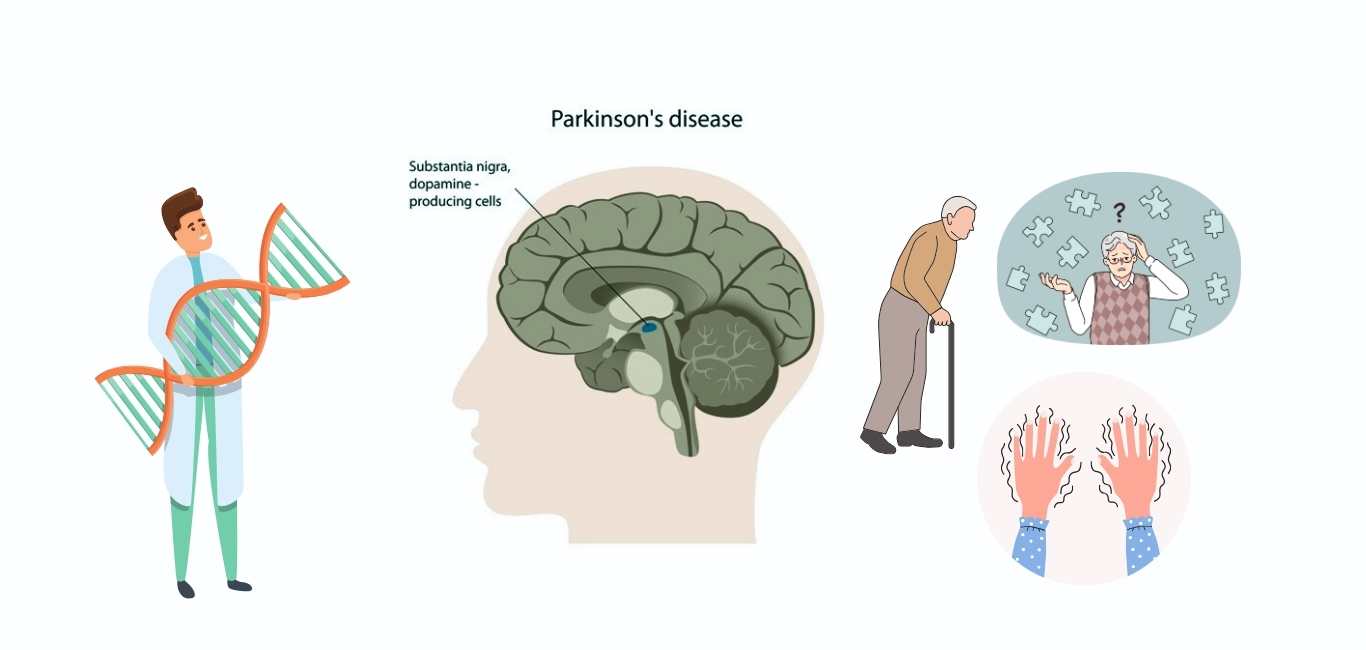
Parkinson’s disease is a neurodegenerative condition that appears in late adulthood. Its development and progression result from a complex interplay of genetic and environmental factors.
Studies indicate that 100 to 500 individuals per 100,000 have the condition. While the exact cause is unclear, it tends to affect more older men than women.
Regional variations
Differences in Parkinson’s prevalence across regions and ethnicities underscore the need to include diverse populations in research and healthcare planning. Recent studies from India reveal that the onset of Parkinson’s happens nearly 10 years earlier in our population compared to the global average.
Why diverse studies are needed
Until now, most research studies have focused on predominantly European populations. This limited diversity in studies means we do not fully understand the complete range of genetic factors influencing the development and progression of Parkinson’s. If we broaden these studies to include people from different backgrounds and ethnicities, we can not only enhance the validity and applicability of findings but also ensure that advancements in diagnosis and treatment benefit a diverse global demographic.
Study to bridge the gap
Our recent collaborative study, conducted in partnership with Denali Therapeutics, is a step towards understanding Parkinson’s disease in the Indian population. The research involved a dedicated consortium of movement disorder specialists known as the Parkinson’s Research Alliance of India (PRAI) and MedGenome Labs.
With a focus on young onset Parkinson’s participants in India (those diagnosed before the age of 50), the study included 674 individuals with well-defined clinical profiles. This study is one of the largest investigations into early onset Parkinson’s disease globally, addressing a crucial gap in research by examining the genetic architecture of the condition in a population that has been underrepresented in global studies.
By analysing the genetic patterns of JOPD or juvenile-onset Parkinson’s disease (onset less than 20 years), YOPD or young onset Parkinson’s disease (onset between 21-40 years), and EOPD or early onset Parkinson’s disease (onset between 41-50 years), our research has shed light on various aspects of the condition, contributing valuable insights to the field.
Crucial findings

In our study, we identified rare variations in over 20 genes, indicating a high genetic burden among Indians with early-onset Parkinson’s. We identified 16 novel variants within established Parkinson’s genes, contributing to the global understanding of the genetic factors involved in the development of the condition.
Our analysis focused on two aspects: identifying uncommon changes in known genes and exploring how rare gene changes could lead to new gene discoveries. In the first approach, around 8.1% of participants carried known problematic genetic abnormalities, with one-third of them being carriers of PRKN mutations, associated with an increased risk of Parkinson’s. We identified two genetic spots, one previously known (SNCA) and a novel one (CCDC85A), leading to the discovery of 16 new variants in Parkinson’s disease genes.
Next, we established a link to GBA1, a well-known risk gene for Parkinson’s, with risky gene variants exclusive to South-Asian populations. However, the most common variant, p.Ser164Arg, was unique to India.
Additionally, while analysing rare genes, we found a link with Bassoon (BSN). Although BSN has been associated with severe obesity, ongoing investigation suggests its potential connection to neurodegeneration and its relevance to Parkinson’s.
How our study stands out
Overall, the study has significantly advanced our understanding of the genetic drivers of Parkinson’s disease in India. By revealing the unique genetic landscape within the Indian population, the research has important implications for diagnosis and treatment.
Our research has provided a comprehensive understanding of the demographic profile and clinical features of YOPD in India, which is essential for tailoring effective diagnostic and therapeutic strategies for this population. In this current era of pharmacogenetics, where gene modification plays a role in managing Parkinson’s disease, our research contributes significantly to overall therapy goals, especially in the Indian sub-continent, which represents nearly a quarter of the global population.
We hope that more rigorous collaboration with national and international research groups and funding agencies will help solve the puzzle of neurodegenerative disorders.


















